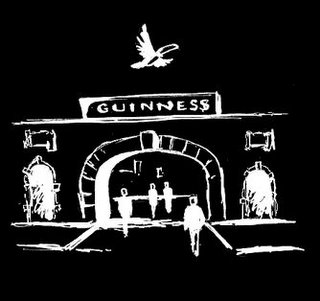It's coming up on 6:30pm local time. I still have over 4 hours until it's "New Years" here in Tucson.
* * *
I was out burning outdated confidential papers an hour or so ago, smoking a cigar and drinking a vodka. And something struck me as I watched the flames consume the paper:
Here we are, two people on opposite ends of the earth, sharing some rather personal thoughts with one another in a forum that could be read by anyone who cared to look, or happened to stumble upon this blog. I'm an extremely private person, yet I'm writing things here I'd never write in a letter, or say in a phone conversation. Why do you suppose that is?
Among other things, I was burning canceled checks from the 1989 to 1991 time period. It was a remarkable memory trip back to a time when I was recently divorced, living back in Michigan, and attempting o date two women at one time and not have either find out about each other. Ultimately I was not successful in my attempt to keep two worlds from intersecting. I caused one woman considerable pain; I married the other.
I really don't have much to add, other than the hour or so I spent burning the checks and thinking about things was a rather reflective time. That was 16 years ago. A time of considerable transition for me. A fairly rough patch, but one I managed to survive.
It may also have been when the Lord first touched me and brought me into a search. There were several checks made out to "First United Methodist Church," which was in Ann Arbor, Michigan. I remember feeling horribly lonely one Christmas, and going to the Christmas Eve service. I recall taking communion and not having a clue what the process or protocol was, and feeling distinctly uncomfortable about engaging in a ritual for which I wasn't sure I had a foundation of any real belief. But I also recall making eye contact with the associate pastor, and seeing in his eyes a kind of compassion and understanding that made me pause.
The Lord is very patient. Fifteen years is nothing to Him. A small seed planted in 1990 was allowed to sit dormant in me.
He's equally patient with me now, as I wrestle with some fundamental aspects of belief. Hence the questions I asked.
What exactly is "love?"
This I don't really know. I suspect you're on target with your suggestion that it's more a selfless thing than a selfish thing, though in our world today that equation is inverted. I'm not certain I've ever operated from a selfless position. Possibly with relation to my dog. That sounds foolish, does it not? But there were times where I set aside all of my own interests and simply gave myself to him and his needs -- such as when he was sick, or helpless.
Are we able to really comprehend how "love" manifests itself in a creator God?
You're right -- we can't know the mind of God. What I'm struggling with is this: the love that God possesses is perfectly formed. What we see or experience on this earth is often (always?) corrupted. Are we able to comprehend even a glimmer of that perfect, selfless love? Perhaps. I alluded to something like it with my dog. I suspect you feel the same for your child.
If I'm unable to understand the concept of "love," am I then unable to appreciate the love God supposedly has for me?
This is a fundamentally important question to me. I am told that "God loves you," yet that phrase has little meaning to me. And yet, understanding that "God so love the world (or me) that he gave his only begotten Son" is central to the Christian faith. Have I ever been "unconditionally loved" by anyone? I can't imagine that I have. My upbringing was, if anything, horribly conditional. And my experience has been that I'm only of interest to others so long as I provide something for them. My perception of things may be completely false, I realize. But my perception of things is my personal reality, such as it is. And it is a terrible impediment to understanding this thing called "God's love for me."
Is it possible that I've never really loved anyone, ever?
I honestly wonder. I'm a selfish person, deep inside -- fueled by, I think, a desire to merely protect myself. Have I ever loved another human in a selfless way? I don't know. I suspect I have not. Two questions then pose themselves: 1) am I measuring myself against an unattainable goal? 2) If "no" to #1, am I able to overcome things and actually love as God would have me love sometime in my life?
* * *
Sobering thoughts, to be sure. Ironic, given this "holiday" is one traditionally observed with anything but sobriety. :-)
Grace and peace, brother.
It's good having you to "talk" to.
You're a blessing to me, to be sure.
